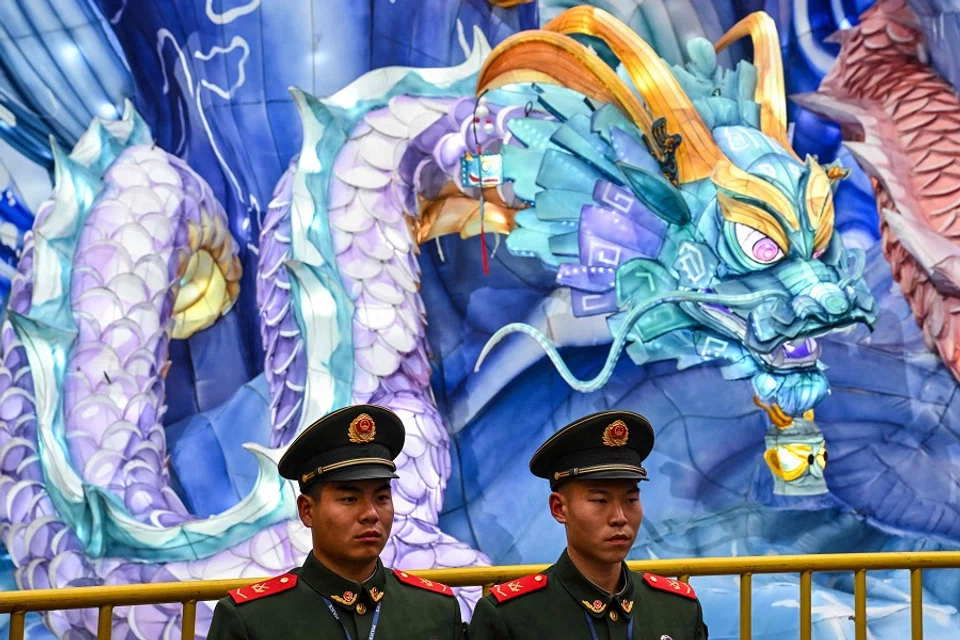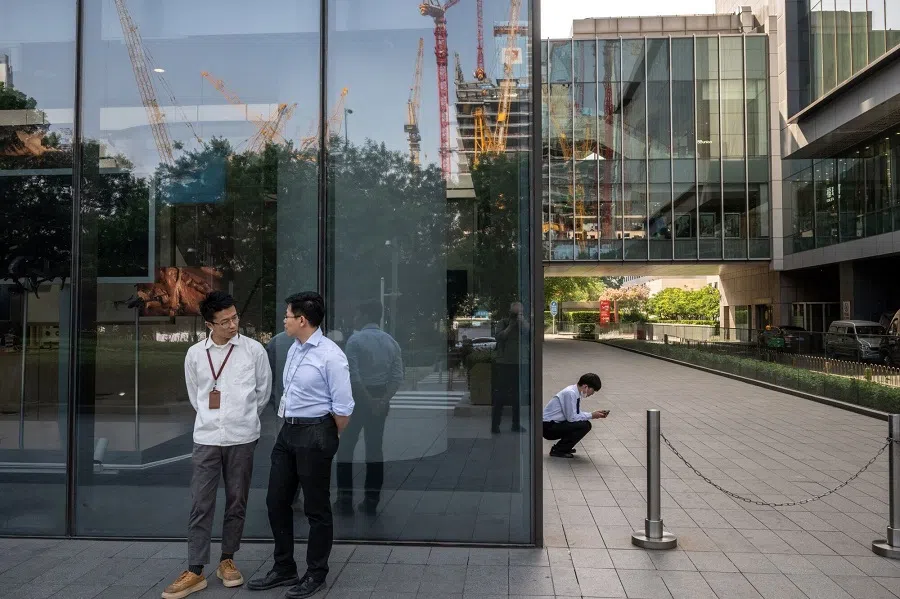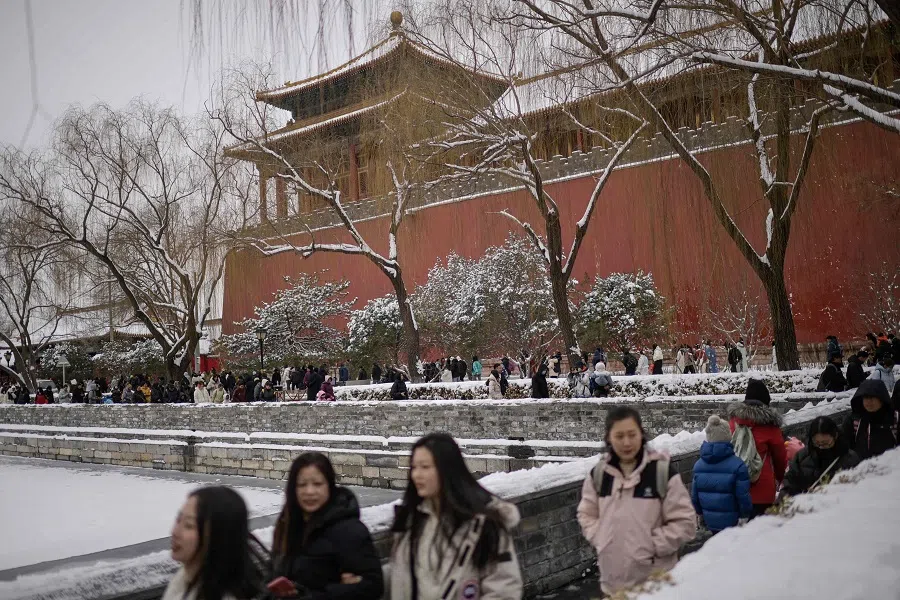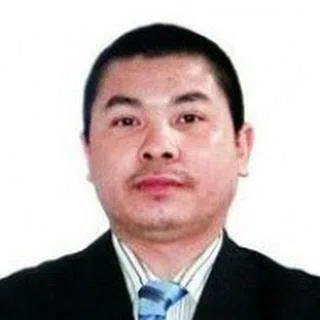Powerful families that rule over China’s grassroots
Chinese academic Han Heyuan takes a look at the prevalence of “political families” in China at the grassroots level. The disadvantages of such a system are obvious, including the obstruction of social mobility, corruption and abuse of power. Furthermore, if a specific family or group monopolises official positions and resources for a long time, it may lead to a decline in the quality of officials, thereby reducing administrative efficiency.

Yinsandai (银三代, bank governors’ third generation) has recently become a new buzzword in China because of a popular drama and a short video.
A blogger even wrote: “In the hit show City of the City (《城中之城》), amid the enthralling battles of wit and strategy among the seasoned middle-aged actors, his appearances never fail to elicit hearty laughter from me. He effortlessly brings a smile to my face, without even needing to lift a finger. Meet Cheng Jiayuan, the ultimate baddie of the workplace.”
Inheriting a family’s legacy and fortune
In the drama, Cheng is an intern at the Binjiang branch of the fictitious Shenmao Bank. Stationed at the front desk, he makes it a daily routine to grumble about his superiors. While his colleagues fret over potentially challenging assignments, he is strangely unconcerned. His only request? Anywhere but the front desk.
Where did Cheng get his confidence? It is all because Cheng is a low-key yinsandai — his grandfather was the first vice-governor of the bank’s head office, while his father was the vice-governor of the bank’s Binjiang branch.

Although Cheng is but a fictitious character in a literary work, literary works often imitate reality.
On the afternoon of 3 April, just as the country was patiently awaiting the Qingming Festival holidays, a short video of a primary school student doing a sentence-making exercise appeared on the internet, dealing a blow to ordinary workers who are already trying their best to stay afloat.
In the video, the boy stood on the stage and proudly said, “I want to succeed my father and become the governor of the Agricultural Development Bank of China. Because my grandfather is the governor of the Agricultural Development Bank of China and my mother is vice-governor. So I wish to inherit my family’s fortune.”
A few days later, a spokesperson of the Anhui branch of the Agricultural Development Bank of China confirmed that the student is indeed the child of one of their employees. His father is a governor of a county-level branch of the bank, while his mother is a deputy executive of a department in a city branch of the bank in the same province. Both his paternal and maternal grandfathers are retired employees of the Agricultural Development Bank of China. His paternal grandfather was an ordinary employee of a branch of the bank, while his maternal grandfather was the governor of a county-level branch of the bank.
‘Political families’ commonplace in China
This phenomenon is not unique to the financial sector. As part of writing his dissertation, Feng Junqi, a PhD student at Peking University’s sociology department, was appointed to temporary positions in a certain central China county for two years starting from early 2008. He worked as a deputy mayor for a year and as a magistrate assistant for another.
During his appointments, he meticulously documented the composition, structure, promotion mechanisms and interpersonal relationships of a county government from an academic perspective, offering an in-depth and insider perspective on the issue. The outcome is his famed dissertation “Zhongxian Ganbu” (《中县干部》, lit. “Cadres in a Central China County”).
The monopolisation of power at the grassroots by political families has solidified the existing social stratification, making it more difficult for people from ordinary backgrounds to enter politics based on merit.
He noted that “political families” (政治家族) are relatively commonplace in the county, occupying an alarming number of key positions in various departments. The guanerdai (官二代, officials’ second generation) phenomenon, which has gained prominence in recent years, is also clearly manifested here.

The monopolisation of power at the grassroots by political families has solidified the existing social stratification, making it more difficult for people from ordinary backgrounds to enter politics based on merit. A main leader from the central China county told Feng that if his sister were to work there, her work and promotion would be well taken care of without his asking because this is just thousands of years of political tradition.
The size of political families is often directly proportional to the power and position of the central figure of the family — the higher the ranking and the more importance the central figure in the family holds, the more cadres will come from that family.
... families or specific social classes are prone to corruption due to their control of political and economic resources. They could accumulate wealth through “power-seeking”, corruption and bribery, to the detriment of public interest.
Strong signs at grassroots level
In Feng’s dissertation, “family” or “clan” (家族) refers to both ties of blood and marriage. Feng divided political families into “big” and “small” clans based on the number of cadres each family produces: big clans refer to those with more than five deputy section head-level cadres (副科级干部), while small clans refer to those with more than two but less than five deputy section head-level cadres.
Based on the author’s meticulous study, he found 21 big and 140 small political clans in the central China county. Upon further observation, he even discovered a unique characteristic of political families: many are bred within an industry or system, possessing a certain degree of a hereditary nature.
A family system in which power is hereditary is often referred to as shijia (世家, aristocracy) in ancient times. This originated from the dafu (大夫, grand master) title during the Spring and Autumn period, which was used to refer to the families within the shilu (世禄, hereditary fixed income) and shiqing (世卿, hereditary nobility) system, thus the name shijia.
While there could be different kinds of shijia depending on the source of power, a common theme is that they were all part of the patriarchal feudal ruling class, and wielded political domination and economic monopoly. Notably, a synonym of shijia is menfa (门阀, dominant and influential families).

But as ancient Chinese history reveals, the ills of political families are obvious: firstly, this type of politics accelerates the solidification of social stratification, often impeding social mobility. This is because the concentration of power, wealth and status in a certain family or a particular social class hinders interactions and mutual exchanges among various social classes. Under such circumstances, it is difficult for the lower rungs of society to gain upward mobility through their hard work, resulting in limited social dynamics.
... the prolonged monopolisation of official positions and resources by specific families or organisations could lead to a decrease in the quality of officials appointed, which could in turn adversely affect administrative efficiency.
Secondly, corruption and abuse of power. Against the backdrop of shijia politics, families or specific social classes are prone to corruption due to their control of political and economic resources. They could accumulate wealth through “power-seeking”, corruption and bribery, to the detriment of public interest.
Next, amid shijia politics, the prolonged monopolisation of official positions and resources by specific families or organisations could lead to a decrease in the quality of officials appointed, which could in turn adversely affect administrative efficiency.
Fortunately, China has yet to be completely taken over by political families, although there are indeed signs of it, particularly in grassroots regimes in cities, counties and towns. To a certain extent, Feng’s dissertation explores the beginnings of a Chinese system that is increasingly reminiscent of the shijia.
This article was first published in Lianhe Zaobao as ““银三代”与中国体制的世家化”.





